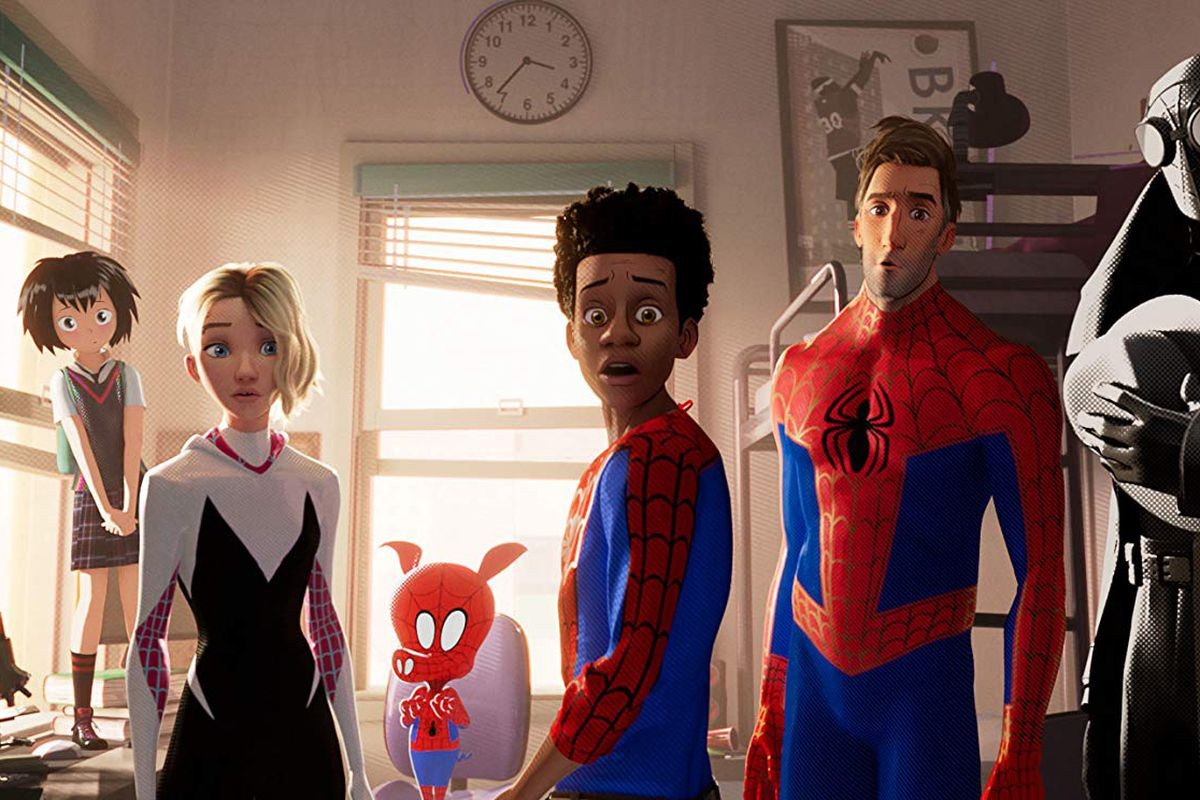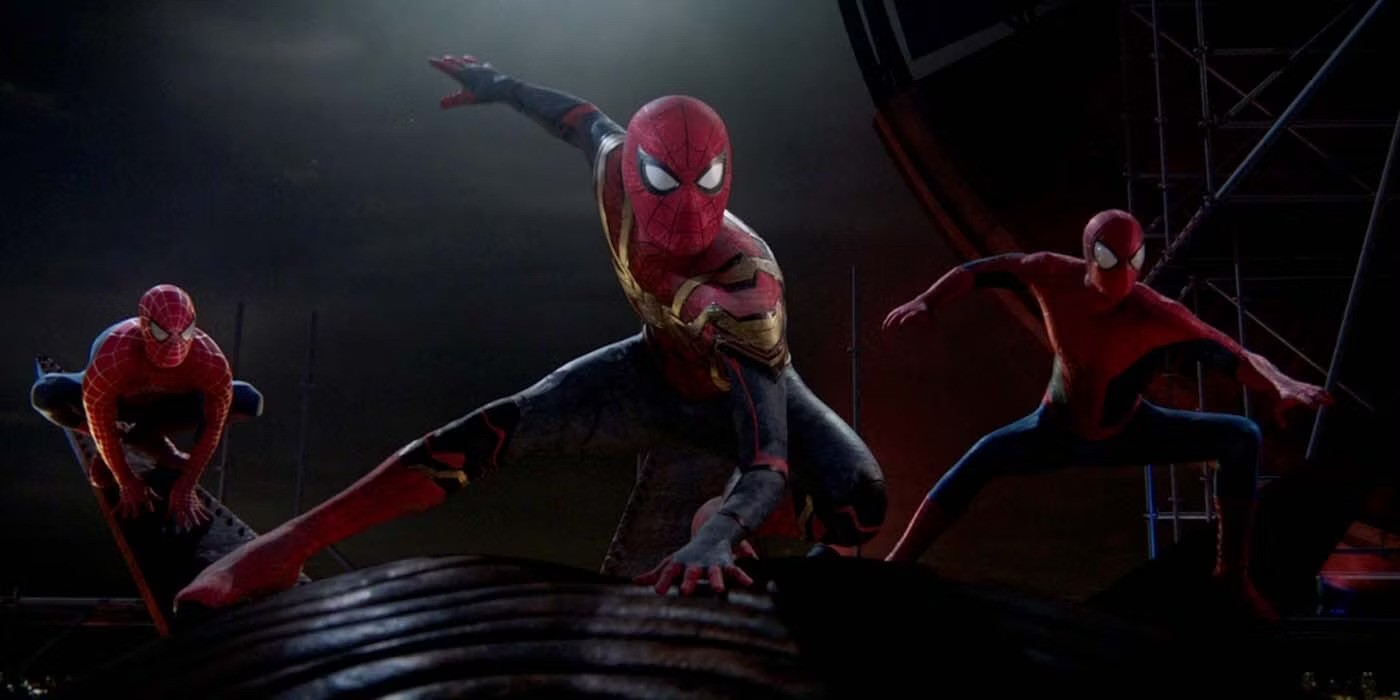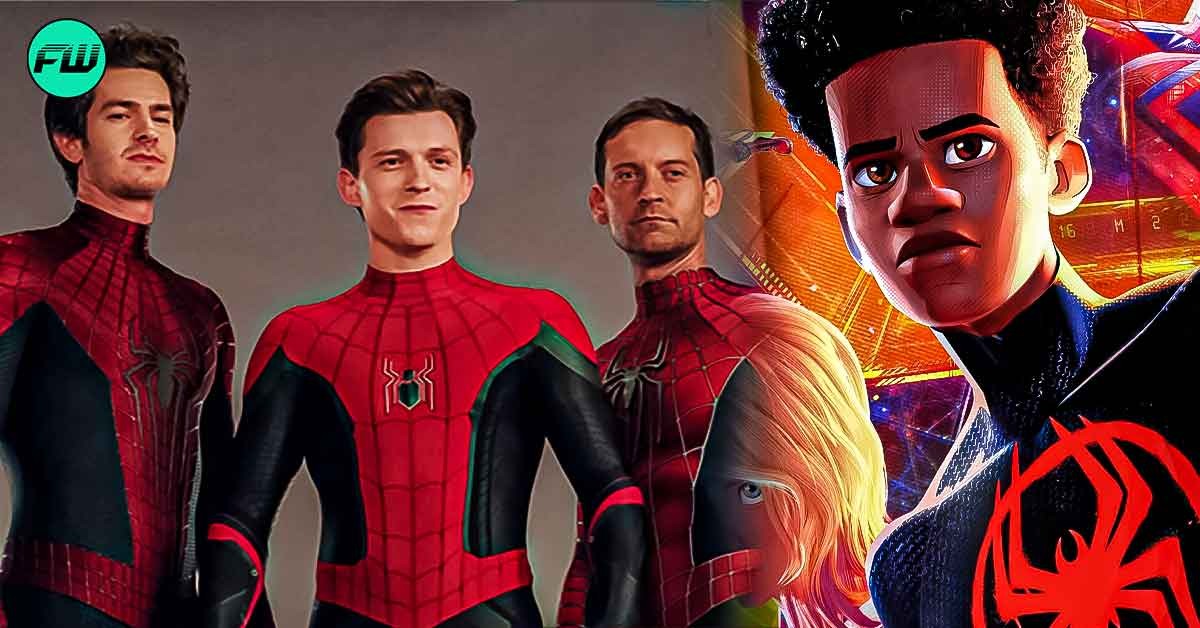Sony’s Spider-Man universe featuring Tobey Maguire, Andrew Garfield, and the Marvel-borrowed participant, Tom Holland, have one thing in common other than their obvious secret superhero identity – they were all supposed to appear together in a film much before 2021’s Spider-Man: No Way Home. And like all good things that come to those who wait, their eventual reunion meant more in the live-action sphere than it would have in the pitched-and-rejected animated feature cameo in 2018’s Spider-Man: Into the Spider-Verse.
Afterward, as revelations occurred in the aftermath of the premiere of Into the Spider-Verse, stars and critics fell head over heels in praise of the animated feature while Tom Holland silently dropped a bomb about his scrapped appearance in the film.

Tom Holland Talks About His Scrapped Easter Egg Cameo
In a June 2019 interview with JOE, just as the world was gearing up for the second solo fly-by of Tom Holland in Far From Home, the resident Spider-Man of the Marvel Cinematic Universe claimed he was supposed to be in the previous year’s standalone animated feature that caused the world to turn on its head. In its aftermath, as Jacob Batalon angled for an in with Amy Pascal to get Ned into the storyline of the animated feature, Tom Holland too expressed his disappointment at having a shot at it and missing:
“At one point, I was supposed to be in it. Yeah, there was going to be another Peter Parker. It was a scene in a train station or something and it was going to be like an Easter egg. I was gonna walk through the background and say like, ‘Hey, kid!’ or something. Never happened. Heartbroken.”
Even more heartbreaking is the fact that Lord and Miller, staying true to their multiversal narrative, proposed the idea to feature all three live-action Spider-Man actors in their film. Sony rejected the pitch claiming it was “too soon”.

Sony’s Spider-Verse ultimately proved a game-changer for the entire animation industry – receiving stellar, unequivocal praise from Guillermo del Toro himself. The film not only introduced a host of never-before-seen Spider-Men into the plot but topped it off with a runtime suitable enough for the vast majority of their audience aka the children while also managing to make the narrative look seamless and effortless rather than the clunky jargon of an overstuffed and underwhelming vision of a multiversal epic.
The Cultural Significance of Spider-Man: Into the Spider-Verse
For perhaps the first time in a long time, when the writers of a story promised “a unique filmgoing experience,” the feeling was reciprocated manifold by the audience after their visit to the theatres. For Sony, such a declaration always worked out for the most part because of its strongest IP: Spider-Man, which the studio never let down or failed to do justice to, be it through the first live-action portrayal of the superhero in the Tobey Maguire trilogy, or Andrew Garfield’s Amazing Spider-Man films, or the Marvel Cinematic Universe version of the teenage Avenger portrayed by Tom Holland.

However, none of those films (8 in total) could match the impact that Phil Lord and Christopher Miller’s Miles Morales version of Spider-Man would go on to have in the contemporary culture of film and animation. IndieWire claimed, “Into the Spider-Verse is somehow both the nerdiest and most inviting superhero film in a long time,” while The New York Post decidedly stated that Miles Morales was “more fleshed out than the usual Marvel heroes.”
The acclaimed critic website Roger Ebert cited it “has a wonderfully trippy, dreamlike quality about it,” while Tribune News Service wrote, the film was “unlike any other superhero or animated film that has come before” and that its animation was like “watching a comic book come to life,” and The Atlantic claimed, “somehow, through sheer creative gumption, does something new in the superhero genre.”
The grandest of all critical responses however came from two sources: The New York Observer wrote: “The greatest triumph and biggest surprise of the film is that it is an LSD freak-out on par with 2001: A Space Odyssey,” and acclaimed comic book writer, filmmaker, and affluent podcaster Kevin Smith declared, “I always liked Spider-Man but this movie made me love Spider-Man on a Batman-type level. It just goes to show you that any character in the right hands can be a transformative experience.” The latter critical review stands out as especially relevant in the days faced in the aftermath of MCU’s Phase Four and the “Marvel fatigue” that has begun to take over the vast demography of the audience.
Spider-Man: Across the Spider-Verse has now launched in theatres with a rating of 96% on RT. The third film in the trilogy, Beyond the Spider-Verse, is set to premiere on 29 March 2024.
Source: Twitter | Christopher Miller

